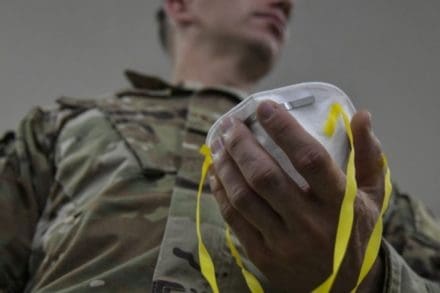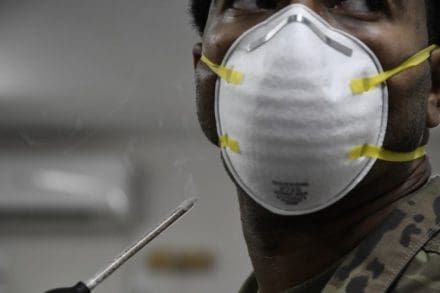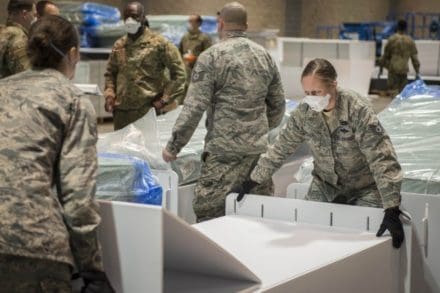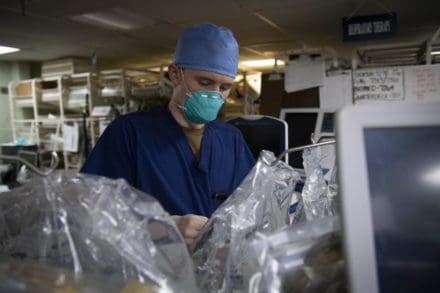
WASHINGTON — A Defense Department contract under the Defense Production Act will provide more than 39 million N95 respirator masks over the next 90 days to help in the fight against the coronavirus, Defense Secretary Dr. Mark T. Esper said.
“This will help ensure our government has the industrial capacity to meet the nation’s needs,” Esper said during a Pentagon news conference yesterday.

Also, he said, a $415 million contract awarded by the Defense Logistics Agency is providing 60 systems that can decontaminate as many as 80,000 N95 respirator masks each day, allowing those masks to be reused.
“This will allow medical professionals to reuse masks up to 20 times and will reduce the nation’s need for new inventory,” Esper said. Six decontamination units have already been delivered to cities including New York; Columbus, Ohio; Boston; Chicago; and Tacoma, Washington, and the rest should be available by early May, he added.

Combined, the 60 systems will allow for the decontamination of some 4.8 million masks each day once they’re all in place. Distribution of those systems will be handled by the Federal Emergency Management Agency and the Department of Health and Human Services, Esper said.
DOD has delivered 10 million of the new N95 masks to FEMA and HHS already, the secretary said, and is prepared to provide 10 million more.
The Defense Department has more than 50,000 service members from all services deployed in support of the fight against the coronavirus, Esper told reporters, with more than 4,000 of those being military doctors, nurses and medical professionals. Around 2,100 of those are now in New York City, including 300 who are in civilian hospitals to relieve civilian medical professionals.

Experience has shown that local hospitals in cities such as New York do, in fact, have the number of beds needed to treat patients, but that medical professionals in those facilities have been overtaxed, Esper said, so that is where the U.S. military is focusing its assistance now.
“What’s obviously become strained, stressed, are these hard-working nurses and doctors and respiratory therapists and everybody who’s been at this now for weeks,” he said. “They’re getting burned out and worn down.” They’re also falling victim to the coronavirus themselves, he added.
“So that’s where we’ve now pivoted in the last week or so — to move our doctors — and we’re doing that now,” Esper said. DOD is moving some doctors off the Navy hospital ship USNS Comfort, which is docked in New York, and putting them into the New York City hospitals to provide relief, he said.

Meanwhile, Esper said, the department is deploying 14 Army urban augmentation medical task forces to priority regions. Six of those task forces are in New York, three are in New Jersey, two are in Massachusetts, and Connecticut, Michigan and Pennsylvania have one each.
The Navy, he said, now has fully established expeditionary medic medical facilities in New Orleans and Dallas, while the Army Corps of Engineers is constructing 25 alternate care facilities around the nation that are expected to make available an additional 15,500 beds in cities such as New York, Detroit and Chicago. Construction of a 450-bed medical facility in Miami also is being discussed, Esper said.
By C. Todd Lopez, Defense.gov

